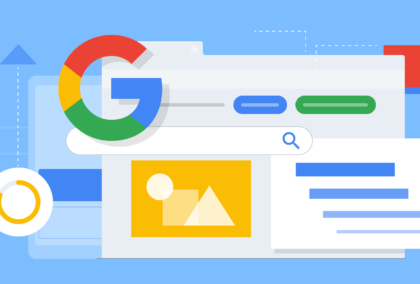For all websites on the web that rely on organic traffic, Google core algorithm updates are severe headaches. Core updates can cause huge variations to site traffic, negatively most of the time. This will affect the online presence, revenue, and profitability of the business. Thus, recovering from a Google core algorithm update is necessary if you want to maintain the organic traffic on your website.
Google’s search algorithms are updated almost every single day. But core updates are the big changes that Google makes to their algorithm to present the users with relevant and authoritative content. Here, we will have a look at some of the tips to recover from updates and regain your former or even better Google rankings.
Call For Real Expertise
As we have seen, Google is looking for websites contents that are relevant and authoritative by all means. Thus, if your website needs medical, financial, or legal content that needs to be accurate, you should leverage the service of the experts in these fields to produce or review the website content. Even though having a detailed author bio can mostly do the job, it is important that the content is to be written by authoritative people in the niche. Apart from the name, what matters is your website content and its scale of credibility and relevance.
Display Trust Signals
To enhance your credibility and relevance in the niche, you should display trust signals like the awards you have won, certifications, other leading businesses recommending your, etc. These are some of the best ways to inform the users and the Google algorithm that you possess the desired expertise in your niche. You should also display the most recent awards at the top to have a better effect.
Use Ads in a User-friendly Way
Google has a page layout algorithm with which it evaluates websites based on the number of ads used and the way in which they are displayed. Too many or less user-friendly ads on your website can affect the overall user experience, and gradually your ranking. The ads you use should also be responsive to mobile devices in a user-friendly manner.
Enhance Content Quality
Most websites that escape from core algorithm after-effects are the ones that provide the best quality content. Your website content should be unique, true, well-researched, reviewed, and should quote other relevant personalities or publications. You should also follow trusted external links for SEO aspects so that it defines the credibility of your content source. You should also audit your website content regularly and check for any possible misinformation. In its Search Quality Guidelines, Google uses the word ‘Consensus’ 20 times, suggesting that the content that contradicts consensus will be rated ‘fails to meet’. Thus, your website content quality should meet the levels of the most trustable publications in your niche.
Avoid Using Selling Language
Google is looking for credible and relevant information from content-oriented websites. If you have an informational website, the content should be also informational rather than directed to sell any forms of products or services. Very often, users do not trust informational content if a call-to-action is provided with it. Thus, if the content is strictly informational, Google algorithm update will not affect your page ranking.
Remove Low-Quality Content
Even if you have the perfect quality content on almost all pages, a single page with poor-quality content can affect the credibility of your website. You must not index or should even remove such pages to recover from Google core algorithm updates. You may discuss with a reliable SEO company in Dubai the drawbacks of having low-quality content on your website.
Solve Technical Issues
Apart from the content quality and the user experience you deliver, your technical SEO side should be perfect so that Google can easily crawl, index, and render your website content for SERP ranking. After a core algorithm update, you should check for crawlability or indexation issues on Google Search Console. You should ensure that there are no page speed issues, AMP errors, and other actions or penalties from Google.
These are some of the best ways to help your page recover from major Google core algorithm updates. So, be sure to check for updates, rules, and regulations regularly and make the relevant changes on your website immediately.



